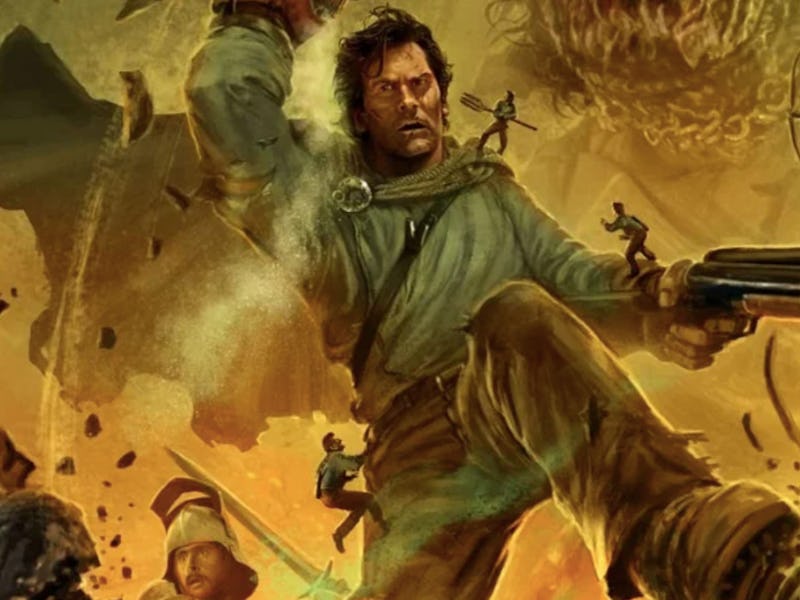How Army of Darkness Turned Evil Dead Into an Unkillable Zombie Franchise
30 years later, this is still the most important chapter in the Deadite saga.

How do you top one of the best zombie movies of all time? By turning its sequel into a time-traveling epic through Arthurian legend, of course.
That’s the approach director Sam Raimi took in Army of Darkness, his follow-up to the cult classic Evil Dead II and the final entry in his genre-redefining trilogy. But thanks in part to the subversive brilliance of Army of Darkness, the Evil Dead franchise remains as unkillable as the Deadites that relentlessly pursued Bruce Campbell’s cocksure hero Ash across space and time.
30 years after Army of Darkness made its theatrical debut on February 19, 1993, it’s worth revisiting how the unlikely genre mashup came to be — and why it’s more relevant than ever all these decades later.
For anyone who had previously seen Evil Dead II and its time-travel cliffhanger, the decision to place Army of Darkness in medieval times was no huge surprise. But the threequel still represents a significant change from the claustrophobic cabin-in-the-woods horror of the first two movies. Here, Campbell’s chainsaw-wielding hero is dropped into the world of King Arthur and the Knights of the Roundtable. And, unfortunately for everyone involved, wherever Ash goes, the Deadites are close behind.
After getting captured and losing his weapons, Ash is tossed into a hole with a Deadite. To everyone’s surprise, he defeats the undead monster and reclaims his shotgun and chainsaw. He’s also introduced to a wise wizard who explains that the only way to get home is with the Necronomicon (the evil magic book that’s appeared throughout the series).
This sets Ash off on an adventure that includes a haunted forest that includes, a trio of tiny Ash clones with a penchant for Three Stooges schtick, and an evil full-sized Deadite version of himself. Eventually, Evil Ash raises an entire “Army of Darkness” and attacks King Arthur’s castle. The situation seems dire, but through a mix of modern technology and pure cockiness, Ash leads the good guys to victory and then heads home to his own time.
Army of Darkness was produced on a budget of just $11 million and grossed $21.5 million (that may seem small, but Evil Dead II only cost a measly $3.5 million and made $5.9M). Behind the scenes, production was also a difficult ordeal. The scale was much bigger and more complicated, and the physical stunts were particularly arduous — at least according to Bruce Campbell.
“It was probably, I would say, the most physically uncomfortable movie in the history of motion pictures, and I’m just gonna say that, and any other actor can kiss my ass loud and hard,” the actor said in a behind-the-scenes documentary interview.
But it was clearly worth it. Not only is Army of Darkness an undeniable joy to watch thanks to its perfect mix of horror, comedy, and fantasy, but it also cemented the longevity of the Evil Dead franchise. Zombies may come and go, but Sam Raimi proved his Deadites could work anywhere and everywhere. That includes TV (Ash vs. Evil Dead), video games, comics, and even a musical.
Evil Dead Rise (2023) will feature a new Deadite called Mommy.
Evil Dead shows no signs of slowing down, either. There’s a new movie (Evil Dead Rise) coming later this year. And last year at Comic-Con, Campbell told Inverse that the show could continue with an animated fourth season. Unsurprisingly, the plot could pull directly from Army of Darkness. Sort of.
The 1993 movie originally ended with Ash traveling too far into the future and winding up in a post-apocalypse. At the time, the studio demanded a less depressing finale, and Ash wound up making it back home instead. But 30 years later, we may finally see that story play out. And if Army of Darkness is any indication, Evil Dead will work just as well in a sci-fi future as it did in the Arthurian past.
This article was originally published on